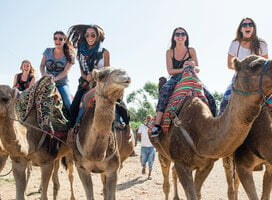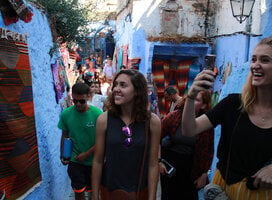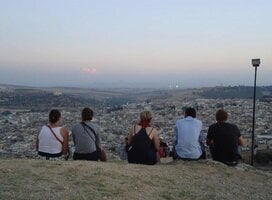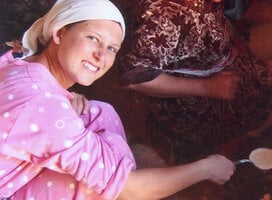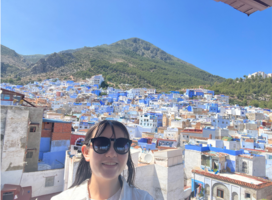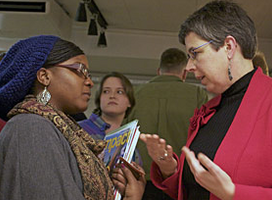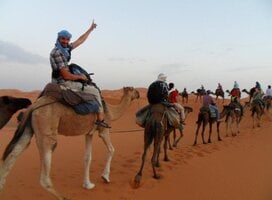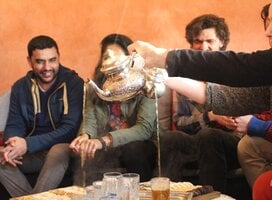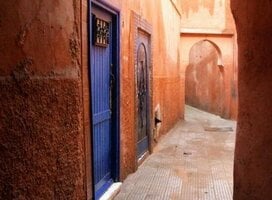Study Abroad Programs in Rabat, Morocco
As the rays of the sun bathe the buildings of Rabat with a warm glow the sounds of the call to prayer from the mosques echo throughout the streets. Rabat is the capital city of Morocco since the days of French colonization, and home to about 3 million people. Like many cities in Morocco, Rabat is both modern and traditional, as can be seen by the juxtaposition of the traditional medina (old city) and the modern buildings.
For a student Rabat has much to offer. It is right on the coast, nestled between turquoise ocean and a wide river, and it is only a few hours drive from Meknes, the Atlas Mountains, and Casablanca. One of the major airports in Morocco is located in the twin city of Sale, which is right across the river from Rabat. Rabat has many culturally rich sites to explore, and is a good city to live in if it is one’s first time in Morocco as it is very safe, easy to navigate, and ideal to explore.
Culture and Immersion
Rabat is home to many architectural and archeological sites that are well worth a visit!
- Hassan II Tower built in 1195, was intended to be the largest minaret in the world. However, construction was abandoned, leaving the tower only half it's planned height at 44m.
- Chellah Necropolis is an collection of ancient Roman ruins as well as the remains of a 14th century palace, mosque and royal tombs. The site was converted into pleasant gardens that where a Jazz festival is held each year.
- Oudaia Kasbah is a fortified quarter near the old city that overlooks the ocean. The little streets and imposing walls are fascinating to explore.
- Amazigh Center holds the most extensive and impressive collections of Amazigh (Beber) artifacts and research in the world.
- Dar el-Makhzen Palace is the official home of the Moroccan Royal Family. Moroccan nationals are not permitted on the grounds, and all visitors must show their foreign passports. The grounds themselves are expansive and beautiful, if a little eerily quiet.
- Muhammad V Avenue is the main road in the city, lined with waving palm trees and lovely sidewalk cafes.
- Medina is the old city, a veritable maze of twisting streets, traditional houses and a constant crush of shops and people. Getting lost here is easy, but a lot of fun! Head to Rue des Consuls to buy traditional Moroccan crafts.
- Delicious Moroccan food is everywhere, but check out some of the following places for something a little different: The Syrian restaurant on Avenue Grand Maghreb delivers every time; A restaurant on Rue Melilya serves up traditional Moroccan Jewish cuisine; the cafe Café Maure in the Oudaia Kasbah is a great place to get tea and look out over the water.
Affordability
The currency of Morocco is the Dirham, however it is often difficult to get Dirham in the U.S. as most currency exchanges don’t keep it in stock. A better bet is to get a few hundred dirham in Europe when you inevitably have a layover. Keep in mind that 100 dirham is roughly equivalent to 30 U.S. dollars.
Some places take credit or debit cards, but it is always a good idea to have cash on you especially if you’re shopping in the medina where you are unlikely to be able to use a card. To withdraw money or exchange different currencies go to a bank or currency exchange place (there’s a good one near the intersection of Muhammad V and Hassan II).
General costs in Morocco are much lower than the US, and an average meal of a tagine or hamburger and a drink will run about 15-20 dirham, or $1.75-2.25.
Culture Shock and Support
Morocco is very different from America, and when you first arrive in Rabat you will be hit with a sensory overload. Once you have taken a few days to become accustomed to your surroundings, Rabat will feel very familiar. It also helps to be in a program with support plans in place for participants.
Be aware that depending where in the city you are, there may not be “western toilets” but instead there may be “Turkish toilets” which are essentially tiled holes in the floor. Sometimes toilet paper is lacking, so it’s always a good idea to have a to-go pack of tissues on you.
The traffic in Rabat seemingly has no rules, so as a pedestrian it is critical to be aware of your surroundings, but also to be aggressive about asserting your right to cross the street, as the “walking man” light doesn’t necessarily mean cars won’t keep driving through the intersection.
Street harassment is a term which encompasses many things, and does not necessarily refer to direct physical harassment. The best way to deal with street harassment is to avoid eye contact with young men in the streets as well as just ignore anything said to you. In terms of physical harassment, walk away, don’t turn back and confront the individual. It isn't unusual to be followed for several blocks by a persistent individual, although they will typically keep their distance and not enter your personal space. Also remember that any bystanders are almost always on your side, and are happy to intervene if the attention gets to be too much. The key idea to remember is that the street harassment is the cultural way for young men and boys to interact with women outside of the house, it isn’t usually a malicious action.
Insider Tips:
- Don’t use the white taxis, these are technically from Sale and will charge you more. Use the blue taxis.
- Whenever you can converse in Arabic, at least use the standard greetings. English and French are widely understood (most people study French at school) but speaking Darija or Moroccan Arabic is always appreciated
- As a woman, walking the streets during the day is perfectly normal. Regardless of your gender, don’t walk alone at night.
- Be aware of where your belongings are. Keep valuables in front pockets. Be aware of your surroundings in general.
- Be aware that people may make assumptions about you as an American. For instance, if you are an American boy they might try to sell you drugs or take you to a brothel.
- Ask before you take a picture, often locals will ask for money in return.
- As a foreigner, use common sense when getting dressed. Tank tops and daisy duke shorts aren’t a good idea, but modest shorts and t-shirts are perfectly acceptable. Men don’t typically wear shorts.
- Always barter, otherwise you will pay a much higher price.
- Don’t drink the tap water.
- Avoid meat and fruits and vegetables especially from street vendors. Fruits and vegetables you can peel should be fine-- the danger is not knowing if they’ve been cleaned properly.
Scholarships: Rabat
Scholarships are a great means for lessening the financial burden of a semester abroad. Here's just the beginning!
- CIEE awards over $1 million dollars in scholarships to students studying abroad.
- The Benjamin A. Gilman International Scholarship is another great scholarship, that offers scholarships to US undergrads in need.
- More Study Abroad Grants and Scholarships
